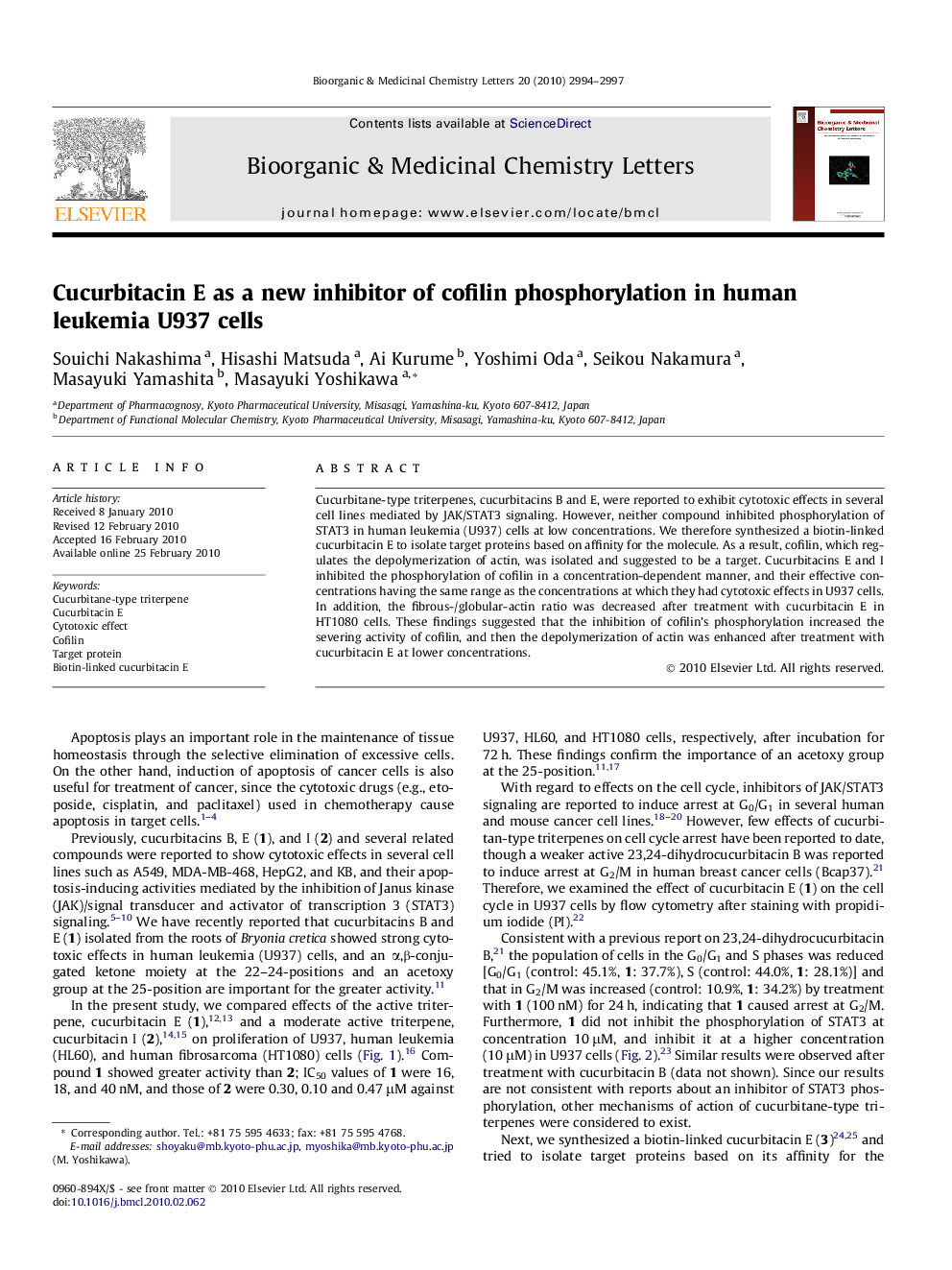| Article ID | Journal | Published Year | Pages | File Type |
|---|---|---|---|---|
| 1374312 | Bioorganic & Medicinal Chemistry Letters | 2010 | 4 Pages |
Cucurbitane-type triterpenes, cucurbitacins B and E, were reported to exhibit cytotoxic effects in several cell lines mediated by JAK/STAT3 signaling. However, neither compound inhibited phosphorylation of STAT3 in human leukemia (U937) cells at low concentrations. We therefore synthesized a biotin-linked cucurbitacin E to isolate target proteins based on affinity for the molecule. As a result, cofilin, which regulates the depolymerization of actin, was isolated and suggested to be a target. Cucurbitacins E and I inhibited the phosphorylation of cofilin in a concentration-dependent manner, and their effective concentrations having the same range as the concentrations at which they had cytotoxic effects in U937 cells. In addition, the fibrous-/globular-actin ratio was decreased after treatment with cucurbitacin E in HT1080 cells. These findings suggested that the inhibition of cofilin’s phosphorylation increased the severing activity of cofilin, and then the depolymerization of actin was enhanced after treatment with cucurbitacin E at lower concentrations.
Graphical abstractWe synthesized a biotin-linked cucurbitacin E to isolate target proteins based on affinity for the molecule. As a result, cofilin, which regulates the depolymerization of actin, was isolated and suggested to be a target. Cucurbitacins E and I inhibited the phosphorylation of cofilin in a concentration-dependent manner, and their effective concentrations having the same range as the concentrations at which they had cytotoxic effects in U937 cells. In addition, the fibrous-/globular-actin ratio was decreased after treatment with cucurbitacin E in HT1080 cells.Figure optionsDownload full-size imageDownload as PowerPoint slide
